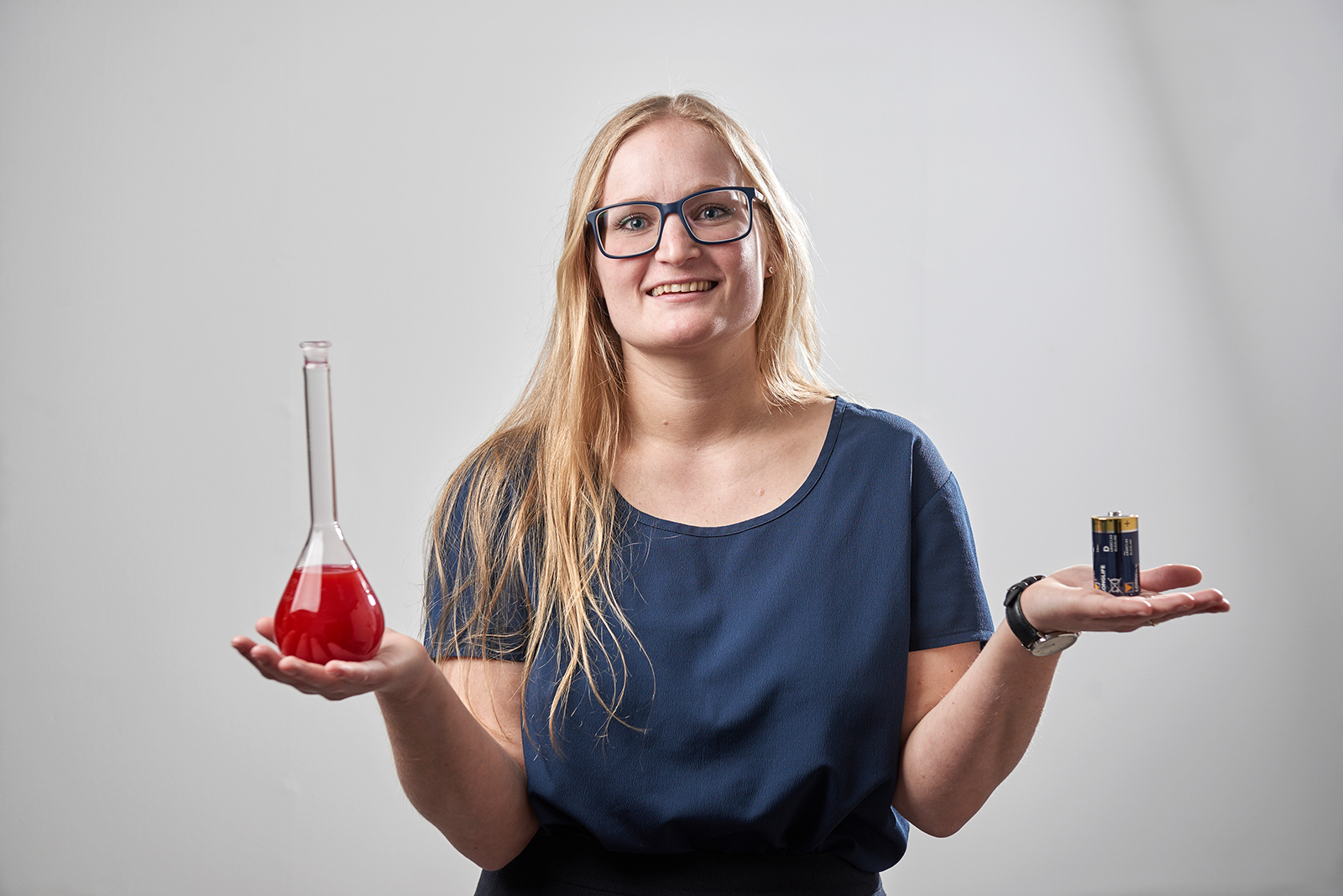Engineer from AU honoured for her work on developing batteries for storing green energy
Kristina Wedege, PhD and MSc in Engineering, will receive the 2019 Aarhus University Research Foundation PhD Award. Kristina is happy that others can see the value of her work on developing greener solutions for renewable energy storage technologies.

If Denmark is to run on renewable energy in 2050 as planned, we need to be able to store solar and wind energy. This is why one of the hottest topics today is to find suitable technological solutions to this challenge, and this is precisely what chemical engineer Kristina Wedege set out to do in her PhD project for which she will now receive the prestigious Aarhus University Research Foundation PhD Award:
“Of course, I'm very happy to receive this recognition. It shows that other people also see the value of the research that, together with my research group, I’ve been putting so much energy into over the past couple of years,” she says.
Kristina Wedege will receive the award – which, in addition to the honour, includes a DKK 50,000 prize – for her research into flow batteries and the performance of a number of organic substances that are cheap to make. A key part of the project focused on investigating whether the batteries can be charged directly in sunlight in a photochemical process.
“Flow batteries are a very interesting technology for storing solar and wind energy. The batteries are intended as a large and relatively inexpensive solution for energy storage, because, in principle, the technology is easy to scale. The battery is based on liquids which are pumped through a cell when the battery is charged and discharged. This means that it is possible to scale the storage capacity by building larger or smaller liquid tanks, and by packing a higher or lower number of cells together. Moreover, the batteries can be highly cost-effective, depending on the kind of materials used,” she says.
Kristina Wedege has a MSc in Engineering in Biotechnology and Chemical Engineering from Aarhus University. Her degree in engineering is a very important reason for her fascination with flow batteries for storing green energy.
“I thought this was an exciting topic for a PhD project. It combines a wide range of fields that I find interesting given my background in chemical engineering, e.g. materials chemistry, organic chemistry and electrochemistry. In fact, flow batteries are a technology that has been known for a long time. The most well-known flow battery was patented as early as in the 1980s. But from my perspective, the interesting thing has been to contribute to developing the technology in a more sustainable direction, for example by replacing metals with organic materials extracted for example from oils or plants, and to combine flow batteries with solar cell materials,” she says.
This is the 17th time the Aarhus University Research Foundation awards its PhD prizes. The prizes are awarded to five highly talented researchers who have conducted research at an impressively high level. The five PhDs receive the DKK 50,000 prize in recognition of their research and their research dissemination.
In addition to Kristina, a medical doctor, a physicist, a political science researcher and an anthropologist will receive the award this year.
